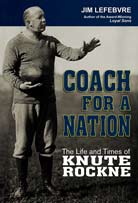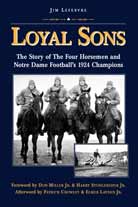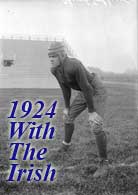The primary reaction to the Penn State scandal is profound sadness. Sadness for the victims and their families, who will be dealing with their pain the rest of their lives.
Second, one has to ask: how many victims could have been spared if certain adults hadn’t looked the other way, covered up or simply “not done more.”
How does a 28-year-old man, at the time a grad assistant football coach, turn away from witnessing a brutal assault on a 10-year-old rather than stepping in to stop it?
The answer, most likely, lies in the unique structure of a big-time college football program, in this case one ruled over by a king-like coach for nearly half a century.
Fear of harming one’s career. Fear of exposing the program to ridicule or worse. Fear of implicating a major figure in that program. All must have been instant calculations in the decision for the 28-year-old to walk away, first call his father, and only the next day take the story to Joe Paterno.
Paterno’s own failings, as well as those of the athletic director, university president, and others, to definitively end the perpetrator’s affiliation with Penn State, contact authorities and immediately seek healing for his victims, will become clearer in the days ahead.
The larger question remains: how do we let football programs get so big, so powerful, so insular, as to overshadow the institutions they represent? And what does that do to common sense and common decency?
Take a look back at history, and we see that tension between football and university has played out at many places and times, including at Notre Dame.
When building the Irish into a nationally prominent team in the 1920s, Knute Rockne had his clashes with the administration, and there were certainly those who felt that football, and its famous coach, was gaining too much power on campus.
That said, there has never been any evidence, even a hint, of a true scandal during Rockne’s tenure.
Yes, there were a few less-than-stellar scholars who were skilled at football, but keep in mind the overall academic profile of the university was a far cry from what it was to become.
Notre Dame football at the time was a pretty fair meritocracy, where anyone could rise up to become a regular. In doing the research for our book Loyal Sons: The Story of The Four Horsemen and Notre Dame Football’s 1924 Champions, one surprising find was that two of the Seven Mules had never played high school football, but found their way on to the varsity via their other athletic feats once at ND.
We would never argue that the 1920s was a time devoid of societal problems, but it speaks to Rockne’s character that he molded a program that was the envy of the nation. And 10-year-olds from coast to coast were inspired to achieve their own greatness.






